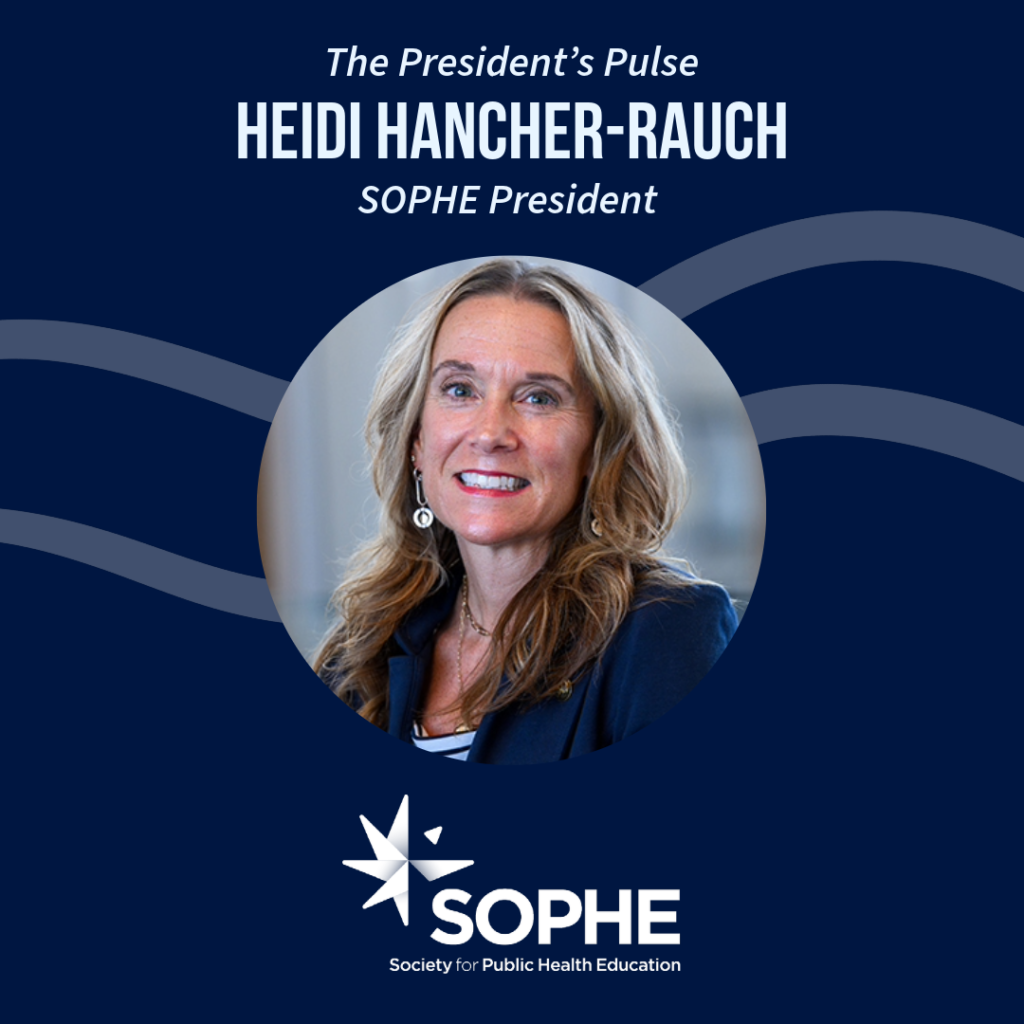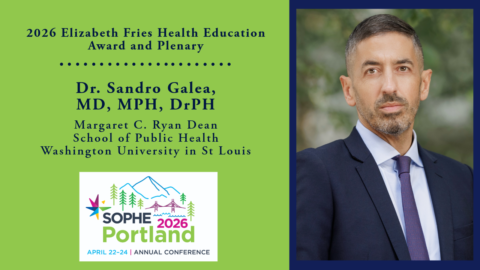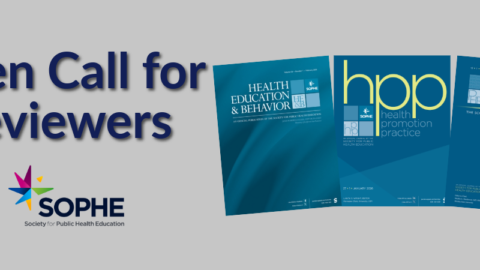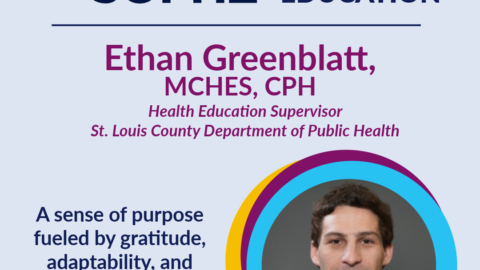Update from SOPHE President Heidi Hancher-Rauch

It has been quite a month for those of us conducting scientific research, working with diverse populations, or simply paying attention to the state of the world. Many of us are concerned about jobs, community well-being, and access to healthcare for ourselves and our families. I too, share these concerns.

It has been quite a month for those of us conducting scientific research, working with diverse populations, or simply paying attention to the state of the world. Many of us are concerned about jobs, community well-being, and access to healthcare for ourselves and our families. I too, share these concerns.
I recently read the two following articles which made me pause and reflect on our collective path forward, and what we can do to exert our power.
The first, If We Want to Save Public Health, We Need to Get Out of Our Bubble (The Nation, August 8, 2025), was written by a public health scholar who attended a recent discussion at the University of Notre Dame on democracy and higher education. The key lesson to apply here: as public health and community leaders, we cannot focus solely on health outcomes. We must also think broadly about democracy, civil rights, and justice. Learning from history and global patterns of political control can help us recognize what is happening here at home. Most importantly, we must build coalitions that extend beyond our traditional health-focused circles. This is not just about saving public health, it is also about protecting the lives and freedoms of people in our communities. Only when we join together do we increase our chances of success.
The second piece, Most People Support DEI—They Just Don’t Know It (Public Health Post, Boston University School of Public Health, August 21, 2025), is a quick but powerful read. The author discusses research by Naomi Isenberg and Markus Brauer showing that people consistently underestimate how much others value policies supporting diversity and inclusion, while overestimating support for anti-diversity sentiments and policies. This “pluralistic ignorance” is dangerous: when we assume our perspectives are in the minority, we may stay silent. That silence can undermine advocacy, reduce funding for DEI programs, and weaken accountability. When voices of support go unheard, leaders (both political and organizational) can wrongly conclude that DEI has little backing.
Taken together, these readings bring me back to a familiar but urgent message: communication and advocacy matter. If we want to be part of the solution and chart a path forward for public health and our communities, we must step outside our personal and professional bubbles. We need to collaborate with those who work in democracy, politics, and civil rights, recognizing that public health is inherently political. Our funding, resources, and even our lives depend on political decisions.
So let’s get out there. Let’s talk with people beyond our comfort zones. We may find we have more in common than we realize. Together, we can drive meaningful, positive change.



